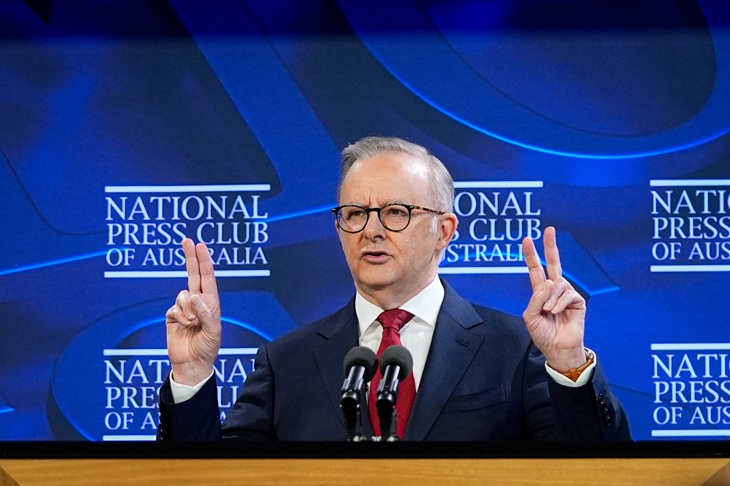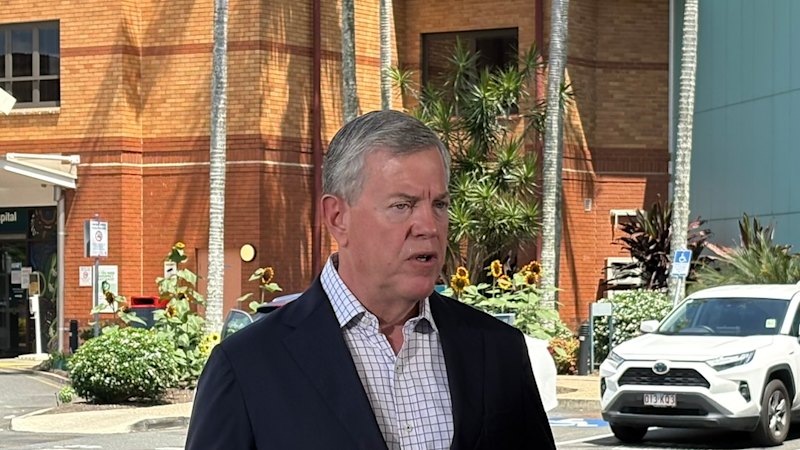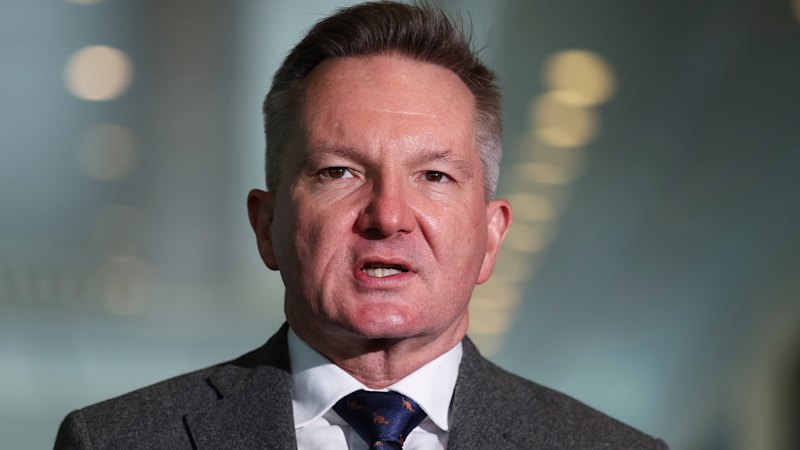
CANBERRA, AUSTRALIA - APRIL 30: Australian Prime Minister Anthony Albanese gives a speech at the National Press Club on April 30, 2025 in Canberra, Australia. Australia will hold a federal election on May 3. (Photo by Asanka Ratnayake/Getty Images)
URGENT UPDATE: Australian Prime Minister Anthony Albanese concluded a controversial six-day tour in China, raising immediate concerns about the implications for Australia’s diplomatic relations and economic interests. The visit, which has been described as both a charm offensive and a troubling shift in foreign policy, has left many questioning whether taxpayer dollars were spent wisely or if too much was agreed upon without adequate scrutiny.
During an interview with the ABC following his return on July 15, 2023, Albanese emphasized the importance of “people-to-people links,” highlighting the role of the 1.4 million strong Chinese-Australian community. He touted initiatives in steel decarbonization as critical to achieving global emissions reduction goals. However, critics argue that his optimistic portrayal of China overlooks its status as one of the most polluted countries globally.
Reactions to the trip have varied widely. The Australian labeled Albanese “Mr. Inbetween,” while Sky News Australia suggested he is “in Beijing’s pocket” after what they described as a “fluffy” visit. The South China Morning Post noted a “stiffening of Canberra’s spine” in response to U.S. pressure, indicating a shift in Australia’s approach to international relations.
Critics are particularly concerned about the implications of deeper engagement with China, especially in healthcare and medical research. Albanese recently tweeted about Australian and Chinese scientists collaborating for new breakthroughs, yet skepticism remains regarding China’s past handling of global health crises, including its role in the COVID-19 pandemic, which resulted in the loss of 7 million lives worldwide.
The Prime Minister’s focus on fostering trust with China has raised alarms. Observers question the prudence of intertwining Australia’s healthcare systems with a nation accused of prioritizing political gain over safety standards. If tensions escalate, particularly concerning Taiwan, the risks of such partnerships could escalate dramatically.
Adding to the controversy, a recent report from the Department of Defence and the Pentagon warned of China’s advancements in bioengineering and genetic research, raising ethical concerns and strategic implications. The report cites that a significant majority of transgenic research is conducted in China, prompting fears about the potential military applications of these scientific advancements.
The overarching sentiment seems to be that Albanese’s approach is a departure from the traditional alignment with Western democracies, marking a significant pivot towards China. Critics argue that this shift could jeopardize Australia’s national security and economic independence.
As the world watches, the ramifications of this visit could reshape Australia’s international standing and influence. Political analysts are urging caution, suggesting that Albanese’s approach may make Australia more vulnerable to manipulation in an increasingly uncertain geopolitical landscape.
The implications of this diplomatic engagement will be closely monitored in the coming weeks as reactions unfold from both domestic and international observers. What happens next could redefine Australia’s role on the world stage, making it essential for citizens to stay informed and engaged.





